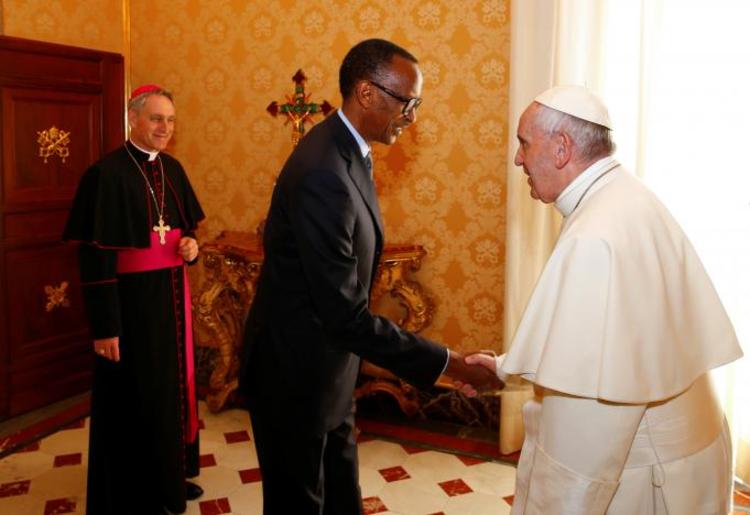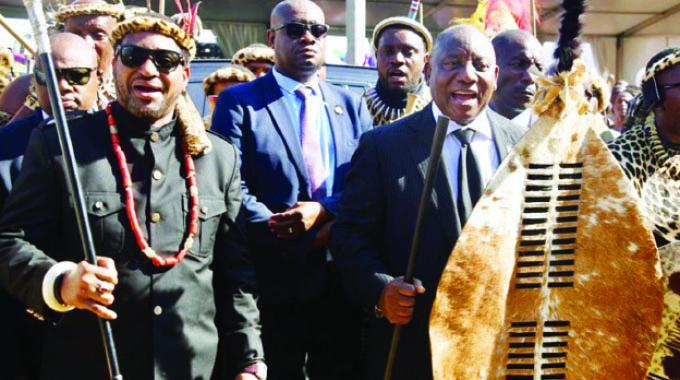Rwanda genocide: Pope seeks forgiveness


Rwandan President Paul Kagame is welcomed by Pope Francis during a private meeting at the Vatican yesterday. – Reuters
VATICAN CITY/KIGALI. – Pope Francis asked yesterday for forgiveness for the “sins and failings of the Church and its members” during Rwanda’s 1994 genocide, saying the violence had “disfigured the face” of the Roman Catholic Church. In a meeting with Rwandan President Paul Kagame, Pope Francis said he hoped his apology would help promote peace in the African country, which was torn apart by genocide in 1994, and contribute to a “purification of memory”.
The Catholic Church in Rwanda last year publicly sought forgiveness for the part played by some of its members, who it said had fanned the ethnic hatred that led to the killings.
Some massacres took place in churches where people who had sought refuge were killed by militias.
The Vatican said in a statement that the pope had “implored anew God’s forgiveness for the sins and failings of the Church and its members, among whom priests, and religious men and women who succumbed to hatred and violence, betraying their own evangelical mission”.
Some 800 000 people from the ethnic Tutsi minority as well as moderates from the Hutu majority were massacred in the 1994 genocide.
Kagame, a Tutsi, led a rebel force to halt the slaughter.
Meanwhile, Rwandan women have been called upon to fully embrace a financial savings culture by opening accounts in banks and micro financial institutions as a way of improving their socio-economic livelihoods.
Nadine Umutoni, permanent secretary in Rwanda’s ministry of gender and family promotion, told reporters on Sunday that Rwandan women had not embraced financial savings culture that hinders their social and economic livelihood.
“Many women manage day-to-day finances on behalf of their family using bank accounts in their partners’ name or joint accounts. Women should take responsibility for their own financial affairs by also having a bank account in their names,” she said.
Umutoni said that many Rwandan women fund household expenses from their salaries, believing they can rely on their partner’s investments and savings for their future.
“Embracing a savings culture will enhance financial inclusion and accelerate growth,” she added.
According to statistics from the National Bank of Rwanda, the number of women who access to financial services has increased from 36.1 percent in 2012 to 63 percent in 2016.
The Rwandan government has continued to champion financial inclusiveness with the creation of the National Investment Trust, promotion of agent banking, mobile money savings and banking insurance, among others. – Reuters-Xinhua.








Comments